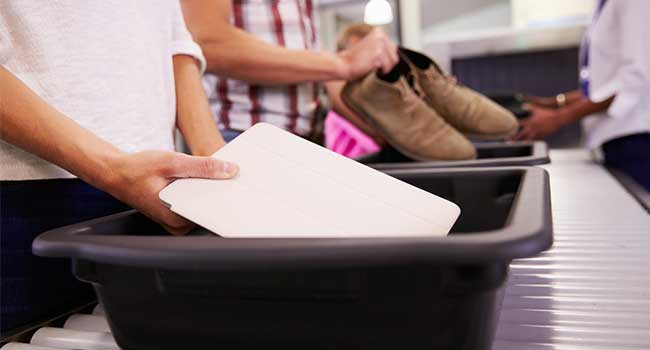
U.S. Reveals New Airport Security Measures to Avoid Laptop Ban
The United States has unveiled enhanced security measures for flights to the country designed to prevent a laptop ban.
The United States has revealed new security measures for incoming flights designed to prevent expanding an in-cabin ban on laptops.
The measures, which will start to take place in three weeks, could require additional time to screen passengers and person electronic devices for possible explosives as well as “seen and unseen” security around the aircraft and inside the airport. Officials declined to outline specific procedures, citing security concerns.
The changes in security protocol would affect 325,000 airline passengers on about 2,000 commercial flights arriving daily in the United States, on 180 airlines from 280 airports in 105 countries.
The decision not to impose new laptop restrictions eases U.S. and European airlines' concern that expanding the ban to Europe or other locations could cause major logistical problems and deter travel.
"Inaction is not an option," U.S. Homeland Security Secretary John Kelly said he believed airlines would comply with the new screening. But he said the measures were not the last step to tighten security.
U.S. carriers said they would follow the new security directive, but criticized Homeland Security for not working more closely with them on the new policies.
“The development of the security directive should have been subject to a greater degree of collaboration and coordination to avoid the significant operational disruptions and unnecessarily frustrating consequences for the traveling public that appear likely to happen," A4A Chief Executive Nicholas E. Calio said in a statement.